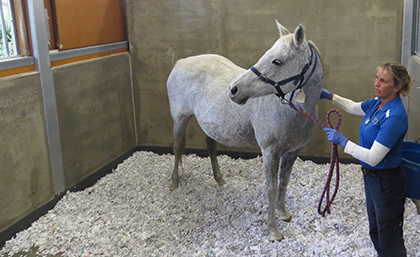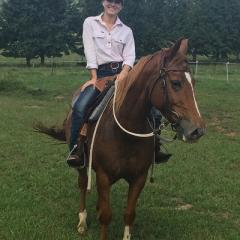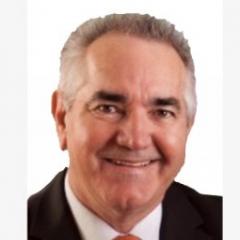 What do you do with unwanted cardboard boxes that cost money to remove, particularly if you’re a large enterprise such as a university?
What do you do with unwanted cardboard boxes that cost money to remove, particularly if you’re a large enterprise such as a university?
At The University of Queensland, the cardboard is seen as a resource that can be recycled to save money, help clients, and train students in agribusiness entrepreneurial enterprises.
UQ’s Gatton Campus is running a pilot project turning discarded cardboard boxes into horse bedding for the UQ VETS Equine Specialist Hospital.
Project manager Dr Francois Visser said the project had potential to save money and reduce waste.
“The equine specialist hospital buys baled cardboard chips from interstate at considerable cost for use as horse bedding,” he said. “At the same time, UQ incurs expense, including the leasing of compacting equipment, to remove waste cardboard from the Gatton Campus.”
“It makes sense to promote sustainable recycling to turn organisational waste such as cardboard into usable material like horse bedding.
“This process will generate substantial savings while promoting work-integrated learning opportunities for students.”
He said the project had been integrated into the Agribusiness program so students could gain hands-on experience in setting up and running a business.
Associate Dean Academic (Gatton) Professor Kim Bryceson said UQ focused on giving students a valuable and enjoyable learning experience, and the horse bedding project offered an ideal work-integrated learning opportunity.
“Applications for UQ’s agribusiness program are growing and this initiative will further boost the program’s popularity,” she said.
The School of Agriculture and Food Sciences has spent $44,000 on equipment for the cardboard recycling project and students in the AGRC2023 (Agropreneurship) course have been setting up the business in first semester, 2017.
“Ten groups of five students each are undertaking a pilot study to develop and test systems for sourcing cardboard, processing the material into bedding, and trialling the product in the equine hospital,” Professor Bryceson said.
Equine surgeon Dr Ben Ahern said the bedding had exceeded expectations.
“UQ will make considerable cost savings if this recycled horse bedding goes into production,” he said.
“If the pilot is successful, we hope to produce a regular supply of high-quality product that meets the School of Veterinary Science’s needs.
“If that goes well, it would be worth considering extending capacity to commercial development of a marketable product sold outside the University.
“From early results, it appears that the project will be financially viable, saving money and providing seed funding for other sustainability projects on the campus.”
Masters student Francisco Rivarola said he felt the project had been an extremely valuable learning experience.
“It helped us understand what needs to be done to turn an idea into a business,” he said.
“Whatever ideas we might have in our future careers, our work on this project will help give us the confidence to take those ideas to the next level.”
Undergraduate agribusiness student Christine Norris and project management team member said she was delighted that the eco-bedding launch event had gone so smoothly.
“The event gave all the students from this course, and other people, a small glimpse of the effort and hard work that went in to the project,” she said.
Dr Visser said the equine eco-bedding contributed to broader sustainability initiatives at the Gatton campus, including a proposed “zero to landfill” strategy that would include a project to complete a sustainability cycle by composting used horse bedding on site.
The equine eco-bedding project involves the Student Employability Centre, UQ Property and Facilities’ Sustainability Office, and UQ business incubator ilab, which is mentoring the student participants.
Media: Dr Francois Visser, f.visser@uq.edu.au, +61 7 5460 1320.



